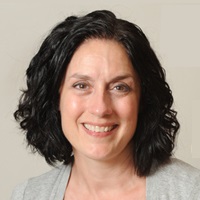More Nurse Practitioners Now Pursue Residency Programs To Hone Skills
 By Michelle Andrews, Kaiser Health News
By Michelle Andrews, Kaiser Health News
Twitter: @mandrews110
Twitter: @KHNews
The patient at the clinic was in his 40s and had lost both his legs to Type 1 diabetes. He had mental health and substance abuse problems and was taking large amounts of opioids to manage pain. He was assigned to Nichole Mitchell, who in 2014 was a newly minted nurse practitioner in her first week of a one-year postgraduate residency program at the Community Health Center clinic in Middletown, Conn.
In a regular clinical appointment, “I would have been given 20 minutes with him, and would have been without the support or knowledge of how to treat pain or Type 1 diabetes,” she said.
But her residency program gives the nurse practitioners extra time to assess patients, allowing her to come up with a plan for the man’s care, she said, with a doctor at her side to whom she could put all her questions.
A few years later, Mitchell is still at that clinic and now mentors nurse practitioner residents. She has developed a specialty in caring for patients with HIV and hepatitis C, as well as transgender health care.
The residency program “gives you the space to explore things you’re interested in in family practice,” Mitchell said. “There’s no way I could have gotten that training without the residency.”
Mitchell is part of a growing cadre of nurse practitioners — typically, registered nurses who have completed a master’s degree in nursing — who tack on up to a year of clinical and other training, often in primary care.
Residencies may be at federally qualified health centers, Veterans Affairs medical centers or private practices and hospital systems. Patients run the gamut, but many are low-income and have complicated needs.
Proponents say the programs help prepare new nurse practitioners to deal with the growing number of patients with complex health issues. But detractors say that a standard training program already provides adequate preparation to handle patients with serious health care needs. Nurse practitioners who choose not to do a residency, as the vast majority of the 23,000 who graduate each year do not, are well qualified to provide good patient care, they say.
As many communities, especially rural ones, struggle to attract medical providers, it’s increasingly likely that patients will see a nurse practitioner rather than a medical doctor when they need care. In 2016, nurse practitioners made up a quarter of primary care providers in rural areas and 23 percent in non-rural areas, up from 17.6 and 15.9 percent, respectively, in 2008, according to a study in the June issue of Health Affairs.
Depending on the state, they may practice independently of physicians or with varying degrees of oversight. Research has shown that nurse practitioners generally provide care that’s comparable to that of doctors in terms of quality, safety and effectiveness.
But their training differs. Unlike the three-year residency programs that doctors must generally complete after medical school in order to practice medicine, nurse practitioner residency programs, sometimes called fellowships, are completely voluntary. Like medical school residents, though, the nurse practitioner residents work for a fraction of what they would make at a regular job, typically about half to three-quarters of a normal salary.
Advocates say it’s worth it.
“It’s a very difficult transition to go from excellent nurse practitioner training to full scope-of-practice provider,” said Margaret Flinter, a nurse practitioner who is senior vice president and clinical director of Community Health Center, a network of community health centers in Connecticut.
“My experience was that too often, too many junior NPs found it a difficult transition, and we lost people, maybe forever, based on the intensity and readiness for seeing people” at our centers.
Flinter started the first nurse practitioner residency program in 2007. There are now more than 50 postgraduate primary care residency programs nationwide, she said. Mentored clinical training is a key part of the programs, but they typically also include formal lectures and clinical rotations in other specialties.
Not everyone is as gung-ho about the need for nurse practitioner residency programs, though.
“There’s a lot of debate within the community,” said Joyce Knestrick, president of the American Association of Nurse Practitioners. Knestrick practices in Wheeling, W.Va., a rural area about an hour’s drive from Pittsburgh. She said that there could be a benefit if a nurse practitioner wanted to switch from primary care to work in a cardiology practice, for example. But otherwise she’s not sold on the idea.
A position statement from the Nurse Practitioner Roundtable, a group of professional organizations of which AANP is a member, offered this assessment: “Forty years of patient outcomes and clinical research demonstrates that nurse practitioners consistently provide high quality, competent care. Additional post-graduate preparation is not required or necessary for entry into practice.”
“We already have good outcomes to show that our current educational system has been effective,” Knestrick said. “So I’m not really sure what the benefit is for residencies.”
This is original content from Kaiser Health News, a nonprofit health newsroom whose stories appear in news outlets nationwide, is an editorially independent part of the Kaiser Family Foundation. It is reprinted here with permission.




